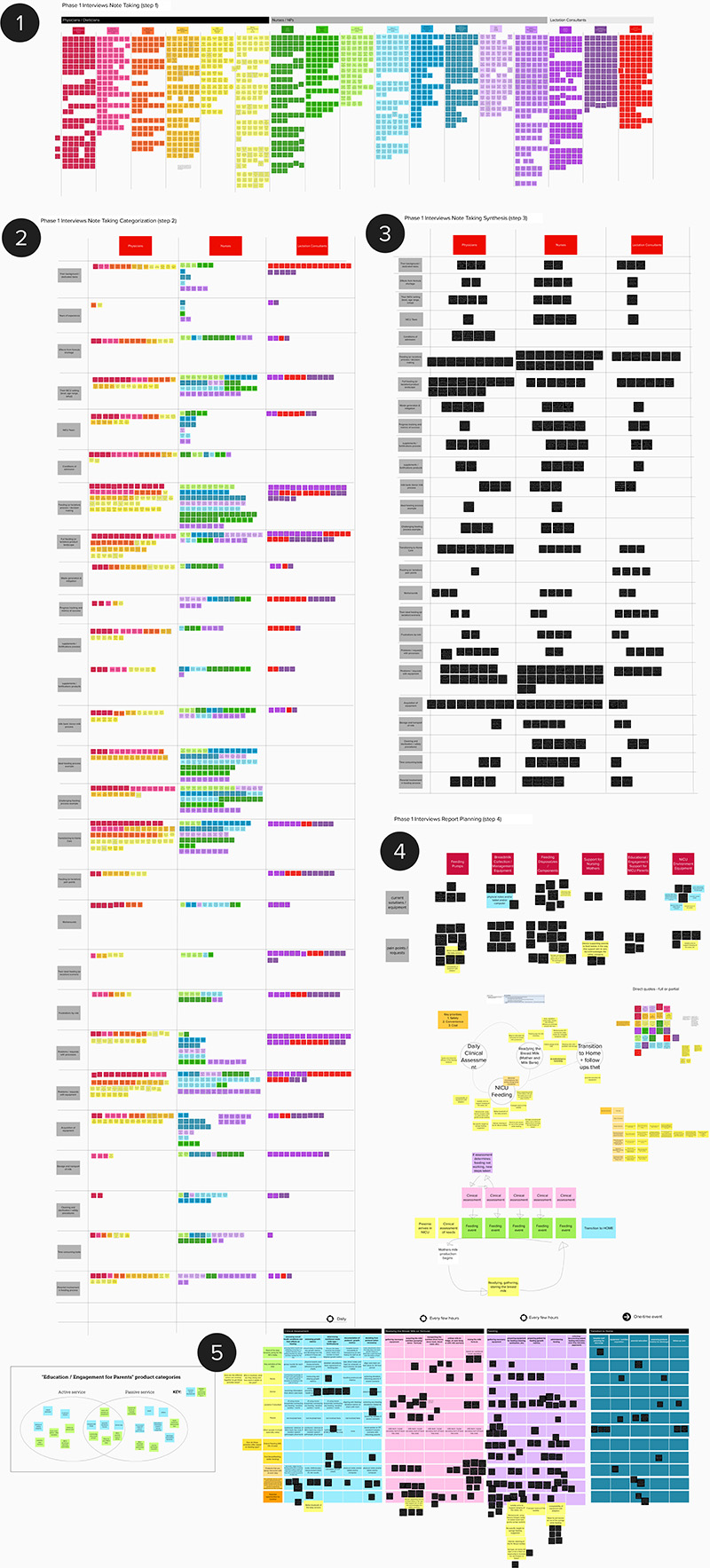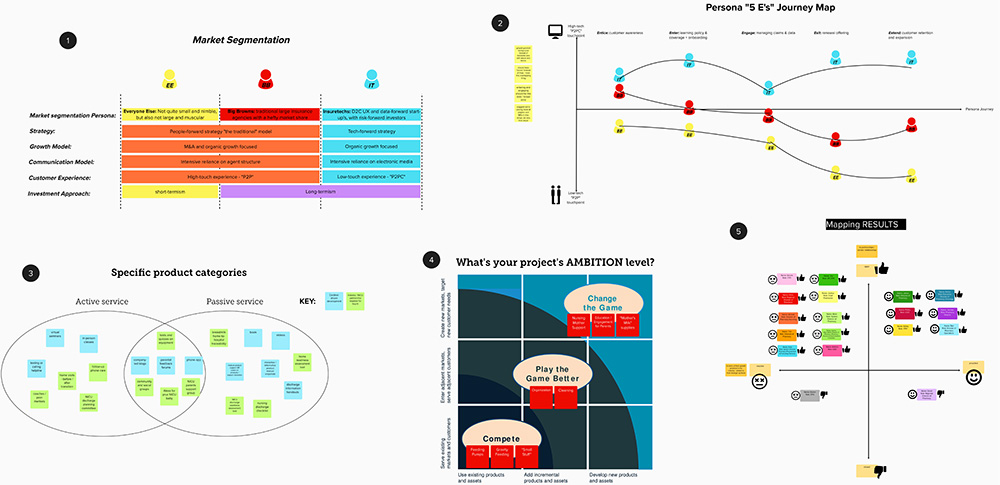


Symptoms include:
What a plague! What’s to be done?!
“Should” can be a perfectly wonderful word in many contexts, calling attention to important standards or expectations. But when organizations start to rely on expectations about how the market in which they operate “should” behave, instead of relying on a clear understanding of that market, then the word “should” is a problem. And it’s a problem we’re seeing an awful lot of these days.
We often see organizations who are stuck in their own echo chamber, or who are stuck “inside the box” they’ve made for themselves.
At some point in the past, a plan was developed, based in a set of ideas or concepts or words, and the organization embraced it and took up the language and point of view it consisted of. There was a feeling of success and purpose around it, and people in the organization referred regularly and dependably to the plan and its components when they interacted with one another.
But over time circumstances changed (a new competitor arose, a new technology was developed, a new adjoining market opened, customers’ needs evolved, etc.) and the organization simply continued with the plan, repeating its key elements and insights over and over to one another, boxed in, as if they were caught in an echo chamber. And slowly, slowly, one began to hear language like: “Well, the plan should work….,” or “Customers should still require what we offer…..” It’s times like that, when an organization has become a set of believers closed off from the real world, that you want to say “‘Should’ is just another flavor of Kool-Aid….”
...those are the times when we suffer from a “perceived reality gap” – where the gap between our perceptions (which have come to believe are 100% correct) and reality has grown so large that we become badly out of alignment with reality.
What’s gone wrong in these instances?
Well, to some degree, organizations caught up in the “plague of should” have failed to heed those old insights like: “Plans are nothing, planning is everything” and “No plan survives contact with the enemy.”
In other words they failed to see that change is relentless, and effective, successful organizations constantly evolve and refresh plans as “things change.” But in another sense we could say that these organizations suffer from a “perceived reality gap.”
Perception of reality is not the same thing as reality – the map is not the territory!
Reality is always more complex and multi-dimensional and deeper and richer than we are able to grasp, so what we perceive of reality is necessarily incomplete. That doesn’t mean that we don’t grasp important elements of reality, or that we are doomed to being unable to get things done in the real world. Of course we get things done, and of course we understand a lot. But there are times when we make the mistake of presuming that our perception of reality is complete and comprehensive – that we understand it all, and that it all forms a single coherent system.
Well, those are the times when we suffer from a “perceived reality gap” – where the gap between our perceptions (which have come to believe are 100% correct) and reality has grown so large that we become badly out of alignment with reality. The human response in such circumstances is often to rely on “should” to paper over the gap — true, something is happening we did not expect, or something has failed to happen that we anticipated, and our response is to say the “that’s not the way things should be.”
Houston, we have a “perceived reality gap!”
What can organizations do to combat the “plague of should?”
The key thing is learning to be aware that there is such a problem, and monitoring what colleagues (and you!) say when it comes to market realities. Being watchful for “the customer/client/market should…” statements is a great first step. But you also need to pay close attention to how much your organization relies on real-time understanding of customers and clients — their needs, their motivations, their behavior, and their expectations. Effective organizations dynamically monitor how they are doing relative to their customers and clients (they ‘meet customers and clients where they are’), and they strive to stay informed about what it is that those customers and clients want. This means actively avoiding making plans and strategies based largely on an expectation that customers and clients “should” behave one way or another.
“Should” is not a strategy – it’s an excuse.
Sylver Consulting loves to help clients bounce back if they’re suffering from the Plague of Should.
We work with them to identify clear problems that we then collectively develop a range of solutions to address. We support them to align around which of those solutions to pursue and what it will look like to implement those solutions into the market and track their impact over time.
Sylver is not stuck on any single methodology (although we have a set of wonderful ones!), and we’re not stuck in anyone’s echo chamber or box. We know that organizations that approach us sincerely want to be successful and do great things. But, we also know, that helping organizations achieve all that means telling them what they need to hear, not just what they want to hear.
Sylver’s expertise is not in knowing solutions to problems, but in knowing how to collaborate with organizations to find solutions that they can embrace and build future success on. We’re willing to dive into ambiguity and explore a market space together with our clients to articulate the fresh opportunities, reframes, or insights that support an escape from the “echo chamber,” tighter alignment between our client and the market, and even full recovery from the Plague of Should.
Peter Bürgi is an anthropologist with extensive business knowledge. Peter is a project lead experienced in qualitative market and organizational research, design/facilitation of workshops and ideation retreats, and consultation on intercultural and corporate culture issues. His background includes working as Vice President at Research International/TNS and at Beall Research, Inc. He has conducted market research, organizational research, and consulting projects for nearly 25 years on four continents. He is Sylver Consulting's Senior Director. 
Unlocking New Vision with LEGO® SERIOUS PLAY®: A Journey with Arity
Take the Guesswork Out of Your Market Positioning with Symbolics™
Reach out to set up a free discovery call. On this call, we’ll get clear on your scope of work to be tackled, how your initiative ladders to a broader business goal of your organization, and assess — without attachment — if Sylver Consulting is a “best fit partner” to support you in your scope of work.



